"I want to make a lasting difference!"
"Tell me about it." - Families talk about their everyday life
The Corona virus has turned our world upside down. Our everyday life has changed and we are facing new challenges. We would like to talk to both parents and children about their experiences. Because only if both groups have a voice can we learn from young and old and in this way be there for both parents and children.
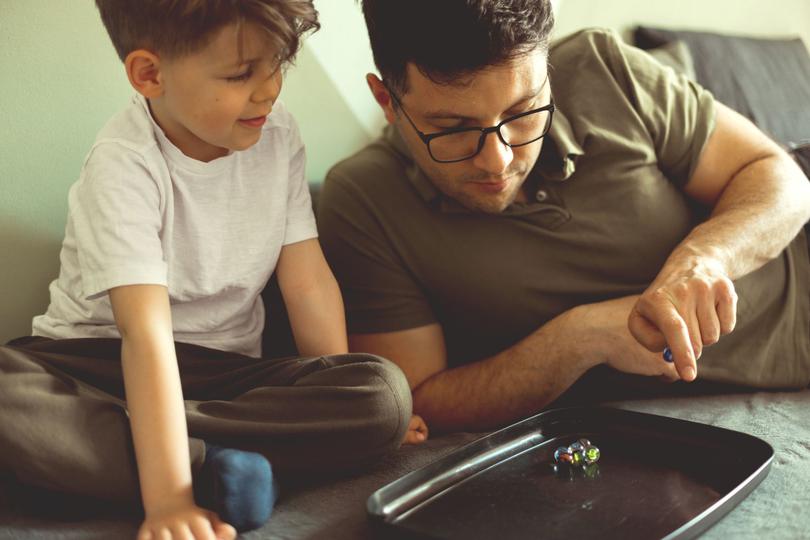
Lea as a single parent and Svenja as a systemically relevant mother have already reported. The 13-year-old Lukas spoke from the perspective of a son and student (Luke). The last speaker was Sarah, a 30-year-old teacher.
Today Jan-Marco, the father of a 2-year-old son, tells what he wants to do better since the lockdown.
Play with your son and get creative
With 2 incomes and a relatively affordable apartment, Jan-Marco and his partner have been spared existential fears. As an educator in a crisis housing group for young people, his work was also systemically relevant - he felt the situation was feasible.
"Since I work mostly at night and my girlfriend works during the day, we had a chance to split time with our kid." During the day he was with his son as a couple and together they got creative: "We built a marble run!"
They also realized that confinement could not be a permanent condition for their son.
Despite the regulations, they maintained contact with a family of friends. Children need physical contact, emotional bonding with peers.
This could not be allowed to fall away.
"A special mindfulness has arisen"
But also the relationship with his partner was suddenly very different. "At the beginning of the restrictions on contact and public life, we quickly developed a kind of special attentiveness for each other."
It is certainly not easy to understand sometimes, but especially in the lockdown it was easier for the 30-year-old Jan-Marco to be a more attentive father. "Maybe this also gave us the chance to create more equality in the distribution of tasks and care for our child."
"All I did before was unburden myself"
Perhaps it was the slower pace or less everyday pressure that changed Jan-Marco's self-image as a father. He admits that he had previously "quite often fled into a traditional distribution of tasks in the face of the usual "social constraints such as productivity, the pressure to distinguish himself and competition.
"For selfish reasons, to relieve myself."
"I'd like to keep changing that. Even though it happened pretty fast that everything around you picked up speed again." He's afraid that "not much may remain of the knowledge you may have gained."
Family and circle of friends are missing as support
Now the hectic pace of everyday life starts again and it is still difficult to be able to leave the little one "in the family or circle of friends" as before
That's why there is no time for two in the relationship.
"A time when we could have built each other up and, above all, reflected together. I don't feel that at any point in time, in private or public space, a proper place was created for this."
"I don't want to have to isolate myself with my family."
Jan-Marco does not consider life in Germany to be particularly family-friendly. "I find it especially challenging to find a role in public social life with my family." He feels the pressure from outside to isolate himself with his family.
He sees too few places where children are welcome. In the everyday life of many people without children they do not even occur. "During the Covid-19 restrictions, we felt like we were on our own, despite all our privileges and possibilities."
And like so many, he does not want to pay attention to himself and his situation. He thinks of those who enjoy fewer privileges: "I can only begin to imagine the pressure that must have built up in families that have been or are still in existential need
Published on
Topics
Articles on the topic
-
How do I find a school place for my child?
Depending on the state and type of school, different things need to be...

-
Chances and child welfare- go for it!
Article from the Süddeutsche Zeitung
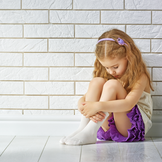
-
It's possible the third Corona wave is approaching. What to do if it really comes?
Part 1: Current developments and a cautious look into the coming weeks
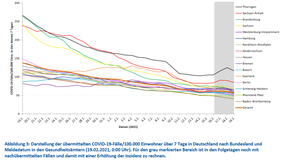
-
What is child sickness benefit and how can I apply for it?
All important information on children's sickness benefit
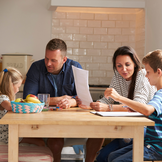
-
Daycare centers and schools will remain closed until February 14. Implementation is to be restrictive.
Decisions of the Chancellor and Prime Ministers of 19 January - The...
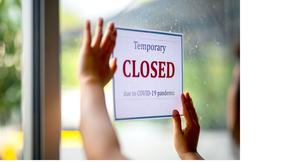
-
Federal-Länder agreements: Updated version with the state regulations on day-care centres and schools - A colourful bouquet of regulations
Which regulations now apply and what they mean - an overview for...
